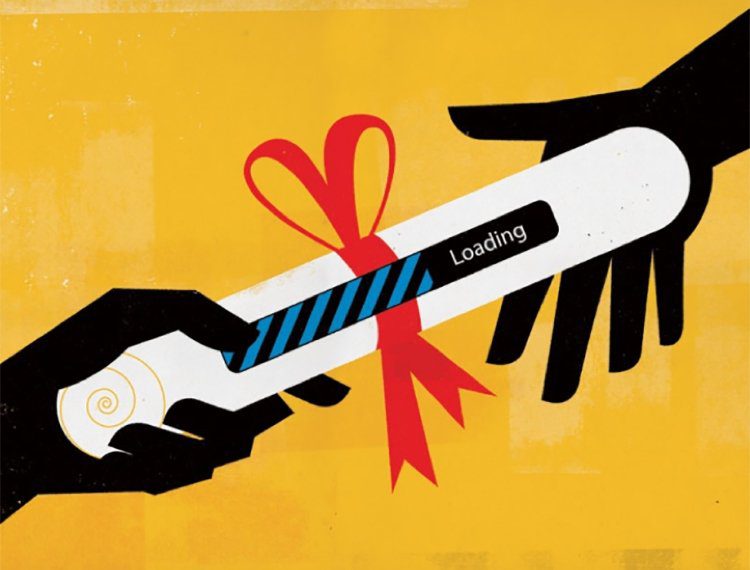
Continuing education is crucial for business people and entrepreneurs dealing with a competitive market where the rules of how to do it change all the time. It is therefore crucial to be up to date with the latest developments, skills, and new technologies required for their fields.
MOOCs provide a great opportunity for entrepreneurs to learn new ideas that can be useful to develop their businesses, especially since they are often free. During the evenings, or at weekends, taking on a MOOC can be helpful for personal development. Here are a few ideas on interesting MOOCs:
How to build a startup
For an entrepreneur just about to launch her or his new project the Udacity “How to Build a Startup” course, which runs for seven weeks can provide valuable information. The course is beneficial for entrepreneurs because it seeks to help them to cut back on the risk of failure. The course focuses on the steps of the Customer Development process which was developed by Steve Blank. As a result the programme is customer focused, looking at how to find and engage customers and how to evaluate effectiveness and improve your business based on their feedback for greater chances of success.
Managing People: Engaging Your Workforce
Taking a more practical and less creative tack, the MOOC “Managing People: Engaging Your Workforce” provided by FutureLearn could prove to be a good option for gaining return on investment at a business. The course is nine weeks long and examines how to get the best out of people, by developing them through work to achieve results. It looks at how people can be energised through effective employee engagement. This takes into account the fact that people are different and teams may often be disparate and addresses common challenges that are faced. On this course participants learn basic psychology and management theory. While the MOOC acknowledges that not everything can be taught in its entirety in such a short time frame, the learner can get set on the right path for success.
Surviving Disruptive Innovation
The purpose of this course is to help individuals and organizations survive when confronted with disruptive technologies that threaten their current way of life. We will look at a general model of survival and use it to analyze companies and industries that have failed or are close to failing. Examples of companies that have not survived include Kodak, a firm over 100 years old, Blockbuster and Borders. It is likely that each of us has done business with all of these firms, and today Kodak and Blockbuster are in bankruptcy and Borders has been liquidated. Disruptions are impacting industries like education; Coursera and others offering these massive open online courses are a challenge for Universities.
CoreEcon: Teaching economics in a different way
Would you like to learn a bit more about economics, that is more up to date with the latest research ? You can try CoreEcon.CoreEcon provides a range of different economics modules that can be studied. The goal of the organisation is to teach economics, “as if the last three decades had happened.” This is currently a major criticism of economics courses in general, and CoreEcon sets about to address this problem. The course tackles issues such as what economics is about, and how capitalism and technological innovation have changed the world. It looks at who are the main economic actors in the world, assessing the role of people and firms within this. It analyses what markets can and cannot do and why they sometimes fail. It also asks the question of how public policies can be used to improve economic performance. Finally it assesses how economists produce knowledge and how economic knowledge has evolved over time in the light of new data, new methods and new problems.
Decision Making in a Complex and Uncertain World
Alternatively, how about developing your decision making skills? Another course offered through Future Learn is “Decision Making in a Complex and Uncertain World.” This has benefits for both work and personal lives. The course is quite creative in its approach and looks at insects and brains and many natural and social phenomena to flesh out ideas that can be applied to economic and financial systems. Leadership and entrepreneurship are two important areas of focus for the course, as well as how complexity has increased through history. The MOOC is offered through the University of Groningen and is run by Lex Hoogduin. In just six weeks your ability to navigate through an increasingly complex and uncertain world will be considerably improved. This is surely something that everyone can benefit from.

Paula Newton is a business writer, editor and management consultant with extensive experience writing and consulting for both start-ups and long established companies. She has ten years management and leadership experience gained at BSkyB in London and Viva Travel Guides in Quito, Ecuador, giving her a depth of insight into innovation in international business. With an MBA from the University of Hull and many years of experience running her own business consultancy, Paula’s background allows her to connect with a diverse range of clients, including cutting edge technology and web-based start-ups but also multinationals in need of assistance. Paula has played a defining role in shaping organizational strategy for a wide range of different organizations, including for-profit, NGOs and charities. Paula has also served on the Board of Directors for the South American Explorers Club in Quito, Ecuador.











